Fakir Mohan University : Institutional Learning Management System(iLMS)
Course categories
Skip available courses
Available courses

This Course will enable the students to apply the concepts of Quantum Mechanics for problem solving at Atomic and subatomic scale to describe the behaviour of matter and energy through critical thinking in physical world.
- Teacher: Santosh Kumar Agarwalla

This Course has two parts. First part enables the students to comprehend the theory, concepts, characteristics and working principles of basic electronic devices and their activities in electronic circuits. The knowledge acquired by the students helps them to design, test, troubleshoot, and rectify faults in electronic circuits.
- Teacher: Munesh C Adhikary

Particle Physics address the question, “What is matter made of?” on the most fundamental level, i.e. it can provide an idea about the smallest scale of size. It is a remarkable fact that matter at the sub atomic level consists of tiny chunk with vast empty space in between. Even more remarkable, these tiny chunks, commonly known as particles, come in a number of different types like electron, proton, neutron, pi mesons, neutrinos etc., which are then replicated in astronomical quantities to make all the stuff around us.
- Teacher: Dr. Bibekananda Nayak

Classical Mechanics affords the students an opportunity to master many of the mathematical techniques necessary for modern physics. Again, classical mechanics today has come into wide use to denote that part of mechanics, where the objects in question are neither too big nor too small and a close agreement between theory and experiment is desirable.
- Teacher: Dr. Bibekananda Nayak

Statistical Mechanics is a formalism which aims at explaining the physical properties of matter in bulk on the basis of the dynamical behaviour of its microscopic constituents. The scope of the formalism is almost as unlimited as the very range of the natural phenomena. In fact, it has been applied with considerable success, to the study of matter in the solid state, the liquid state or the gaseous state, matter composed of several phases or several components, matter under extreme conditions of density and temperature.
- Teacher: Dr. Bibekananda Nayak

- Electrostatistics and magnetostatics are introduced so as to link from the undergraduate levels to advanced levels on electromagnetic theory. Electromagnetic Theory covers the basic principles of electromagnetism so as to enable students for understanding physical phenomena and principles in postgraduate and research levels.
- Maxwell’s Equations
- Microwave Propagation
- Radiation and Diffraction
- Covariant Formulation
- Teacher: Himanshu Bhusan Nayak
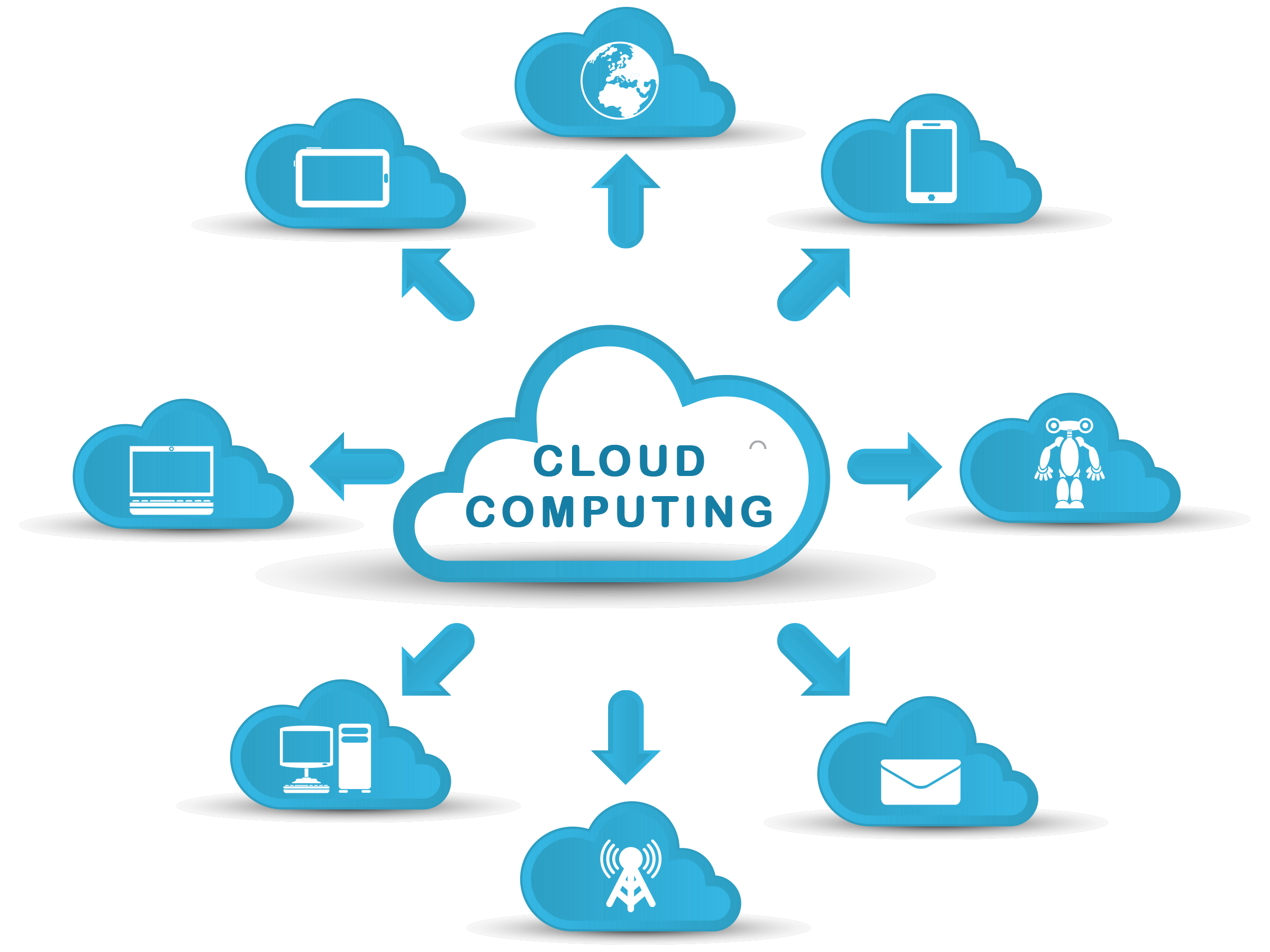
Cloud computing is the on-demand access of computing resources—physical servers or virtual servers, data storage, networking capabilities, application development tools, software, AI-powered analytic tools and more—over the internet with pay-per-use pricing.
- Teacher: Prof. Sabyasachi Pattnaik

Research in simple terms refers to search for knowledge. It is a scientific and systematic search for information on a particular topic or issue. It is also known as the art of scientific investigation. Here, we will be discussing the key ingredients and role of research in management. But, first let us understand the meaning of research. It will be clear after going through some important definitions of research.
Several social scientists have defined research in different ways. In the Encyclopedia of Social Sciences, D. Slesinger and M. Stephension (1930) defined research as “the manipulation of things, concepts or symbols for the purpose of generalizing to extend, correct or verify knowledge, whether that knowledge aids in the construction of theory or in the practice of an art”.
- Teacher: Prof. Sabyasachi Pattnaik
This is a part of pre conference activity .... AAIS2024
- Teacher: Fakir Mohan University Administrator
- Teacher: Ashis Kumar Pradhan
- Teacher: Dr. Ashanta Ranjan Routray

The objective of the course is to introduce the fundamentals of Data Structures, Abstract concepts and how these concepts are useful in problem solving. After completion of this course student will be able to –
- Analyze step by step and develop algorithms to solve real world problems.
- Implementing various data structures viz. Stacks, Queues, Linked Lists,
- Trees and Graphs.
- Understanding various searching & sorting techniques
- Teacher: Dr. Ashanta Ranjan Routray

This course deals with networking models, types of networks, components of computer networks and network protocols.
- Teacher: Dr. Minati Mishra

This course deals with
- Scan conversion of the basic geometrical primitives.
- Mapping objects from world coordinate system to device coordinates system, clipping, and projections.
- Two and three dimensional geometric transformations.
- Technical aspect of Multimedia Systems.
- Teacher: Dr. Minati Mishra

The objective of the course is to train students for building a machine which can think and act like a rational being.
- Teacher: Satchidananda Dehuri

This course deals with
- Fundamentals of Regular and Context Free Grammars and Languages.
- Design of Finite Automata, PDA and TM.
- Teacher: Dr. Minati Mishra

The aim of this course is:
- to understand security threats and vulnerabilities.
- to study mechanisms those provide various security services.
- to study theories and principles of cryptography and necessary approaches and techniques to build protection mechanisms in order to secure computer networks.
- Teacher: Dr. Minati Mishra

This course aims to introduce basics of Python programming with Data Science and Machine Learning.
- Teacher: Dr. Ashanta Ranjan Routray

A life cycle model represents all the methods required to make a software product transit through its life cycle stages.
- Requirements & Analysis.
- Project Planning.
- Design.
- Coding & Implementation.
- Testing.
- Deployment.
- Maintenance.
- Teacher: Prof. Sabyasachi Pattnaik

The objective of this course is to study the
fundamental concepts of database management systems, like aspects of database
design, database languages, and database-system implementation.
- Teacher: Monalisa Jena

The objectives of learning this subject are:
· Developing practical programming skills· Understanding the compilation process
· Learning about programming language design
· To become familiar with compiler tools and technologies
· Understanding program optimization and performance
- Teacher: Monalisa Jena

This course aims to introduce basics of algorithm design techniques with analysis of various approaches of solving problems using divide and conquer, dynamic programming, Greedy method and graph algorithms.
- Teacher: Dr. Ashanta Ranjan Routray

Course Overview:
This course provides a comprehensive introduction to the principles, practices, and technologies used in cybersecurity and digital forensics. Students will gain a foundational understanding of how to protect digital information from cyber threats and how to investigate digital crimes. The course covers key topics including cyber threat landscape, security measures, legal and ethical issues, and forensic techniques.
- Teacher: Dr. Minati Mishra
Demonstrate basic data analytics principles and techniques
Apply control structures the concepts of inheritance and overloading for a given problem
Perform essential operations using Numpy and Pandas
Structuring the data in the dataset for a given problem
Demonstrate the concepts of data visualization
- Teacher: Dr. Ashanta Ranjan Routray

This course provides an introduction to the study of topology, which is a
branch of mathematics concerned with the study of the properties of
objects that are preserved under continuous deformations. Topology is a
fundamental area of mathematics that has many applications in fields
such as physics, engineering, computer science, and economics. Upon completion of the course, students will have a solid foundation in
the fundamental concepts and techniques of topology, and will be able to
apply this knowledge to solve problems in a wide range of fields.
- Teacher: Gauranga Samanta

This course provides an introduction to the application of statistical
methods to biomedical research. It is designed for students interested
in pursuing careers in health sciences and related fields. The course
covers the fundamental concepts and principles of biostatistics,
including data analysis, probability, hypothesis testing, and
statistical inference.
- Teacher: Gauranga Samanta

- Teacher: Avaya Naik

The objective of this course is to approach integration via measure, rather than the other way round. It is fundamental to many areas of Mathematics and Probability. Also it has many applications in other fields such as Physics, Economics, Mathematical Finance and so on.
- Teacher: Sushomita Mohanta

The objective of this course is to understand
basic methods for solving Partial Differential Equations of first order and higher order.
- Teacher: Sanjaya Kumar Parhi

|
The probability and statistical inference course has great application in engineering technology, biological sciences and many more problems in real life situations. The knowledge on this course will provide the basis for further studies in advanced course like Stochastic process, Statistical Methods etc. which forms the basics of higher mathematics. |
- Teacher: Gauranga Samanta

Differential Equations introduced by Leibnitz in 1676 models almost all physical, biological, Chemical, Socio-economic system in nature. The objective of this course is to familiarize the students with various methods of solving differential equations and to have a qualitative analysis of the behaviour of solutions along with existence and uniqueness problems.
- Teacher: Sanjaya Kumar Parhi

• Deals with the study of complex Number
• Analytic Function
• Taylor's Series
- Teacher: Avaya Naik

|
The objective of this course is to give basic materials to students so that they can easily understand the structure and topology of real number system, sequences and series of real numbers and functions, Riemann Integration.
|
- Teacher: Sushomita Mohanta

- Teacher: Sanjaya Kumar Parhi

The objective of this course is to acquaint students with various methods of finding solution of different type of problems such as locating roots of equations, finding solution of nonlinear equations, systems of linear equations, differential equations, Interpolation and approximation, differentiation, evaluating integration so as to minimize the error and time required to solve the problem and to evaluate approximate eigenvalues by using different methods.
- Teacher: Sanjaya Kumar Parhi
It gives a broad idea about various aspects of Ecosystem Services.
- Teacher: RANINDRA KUMAR NAYAK

India has a rich history of environmental legislation. The Constitution of India has provisions for the protection and improvement of the environment and safeguarding of forests and wildlife. The environmental laws in India are guided by environmental legal principles and focus on the management of specific natural resources, such as forests, minerals, or fisheries.
Some of the key environmental laws in India are:
1. The Wildlife (Protection) Act, 1972
2. The Water (Prevention and Control of Pollution) Act, 1974
3. The Air (Prevention and Control of Pollution) Act, 1981
4. The Environment (Protection) Act, 1986
5. The energy conservation act, 2001
6. Biological diversity act 2002
7. Scheduled Tribes and Other Traditional Forest Dwellers (Recognition of Forest Rights) Act, 2006 (FRA)
8. The National Green Tribunal Act, 2010
9. Compensatory Afforestation Fund Act, 2016
These laws aim to protect the environment and promote sustainable development in India. They cover a wide range of issues such as air pollution, water pollution, waste management, forest conservation, biodiversity conservation, and climate change.
- Teacher: Shibani Hansdah

- Teacher: Shibani Hansdah
- Teacher: Shibani Hansdah

Mangroves are peculiar group of salt tolerant plants having some special ecological adaptations such as viviparous germination, presence of pneumatophores and salt excretory glands which constitute an important biodiversity in the estuarine regions of the world. Mangrove forests help in carbon sequestration and are most productive and biologically important ecosystems of the world because they provide important and unique ecosystem services to human society and coastal and marine systems. They provide nesting and breeding habitat for fish and shellfish, migratory birds, crocodiles and sea turtles. These forests are very useful for reduction of greenhouse effects and reducing the intensity of cyclones and tsunami. These forests also provide food, fodder, timber, medicinal plants which are very useful for maintaining ecological balance in the coastal regions of the world.
- Teacher: RANINDRA KUMAR NAYAK

Prevention
and control techniques of gaseous pollutants (Combustion, Absorption,
Adsorption & Condensation); Prevention and control methods of particulates
matter (Settling Chambers, Cyclone Separators, Wet Collectors (Scrubbers), Bag
Filters and Electrostatic Precipitators); Sources of Water Pollution & its Control; Soil pollution & its Control; Noise Pollution & its Control.
- Teacher: Dr. Prakash Chandra Mishra

Meteorology is the science dealing with the atmosphere and its phenomena, including both weather and climate.
- Teacher: Mihir Tanay Das

Human activities cause the rapid rise global average temperature. Recently Global warming is the important environmental challenge. There is a link between global warming and ozone layer depletion. Global warming potential (GWP) is a weighting factor that allows comparisons to be made between the cumulative global warming impact over a specified period of time of some greenhouse gas and a simultaneous emission of an equal mass of CO2.
- Teacher: Shibani Hansdah

This course emphasizes the basic knowledge on cleaner technology in agriculture including the development and utilization of biofertilizers and biopesticides for achieving agricultural sustainability.
- Teacher: Surjendu Kumar Dey

The technique of photographing the Earth's surface or features of its atmosphere or hydrosphere with cameras mounted on aircraft, rockets, or Earth-orbiting satellites and other spacecraft is known as Aerial photography. Several applications of Aerial photography includes cartography (particularly in photogrammetric surveys, which are often the basis for topographic maps), land-use planning, archaeology, movie production, environmental studies, power line inspection, surveillance, commercial advertising, conveyancing, and artistic projects etc.
- Teacher: DR. SMRUTI REKHA SAHOO

Remote sensing is the process of detecting and monitoring the physical characteristics of an object, area or phenomenon by measuring its reflected and emitted radiation without being in physical contact with it. The applications of remote sensing include land-use mapping, weather forecasting, environmental study, natural hazards study, and resource exploration etc. In this course students will learn the fundamentals and the applications of remote sensing in various fields.
- Teacher: DR. SMRUTI REKHA SAHOO

The course focuses on ocean-atmospheric interactions, different climatic conditions, and causes, marine mineral resources, etc.
- Teacher: Arun Kumar Naik

This course will enable the students to know about the various disasters and their management techniques.
- Teacher: Dr Asim Amitabh Pradhan
This course plans to introduce the students about the major components of population analysis including morbidity an mortality and expose them about the global burden of diseases such as DALY, HALE and HALE.
- Teacher: Ujjwal Das
- Teacher: Sabita Soren
This course plans to introduce the students about major component of population and health analysis, including Fertility, and reproductive health, and expose them about public health transition.
- Teacher: Ujjwal Das
- To expose the foundations, approaches and theories of human geography
- To understand the human diversity, differences and conflicts
- Teacher: Rabi Narayan Behera
Valuing economic dimensions of human societies.
- Teacher: Sasmita Rout

- Critically evaluate the life forms and it spatial correlates.
- Understanding the values of biodiversity and its dynamics.
- Teacher: Rabi Narayan Behera
Research is crucial to both teaching and learning. It feeds to the new idea, concept, field realities and interestingly enriches teaching methods. Doing research means we are much closer to the people and the multiple realities around. It strengthens and get strengthened both reading and writing.
- Teacher: Sasmita Rout

Statistical Package for Social Science (SPSS), which is considered as one of the most comprehensive and user-friendly software for statistical analysis, is extensively used today by the social scientists all over the globe. This course intends to provide the learners a basic understanding of the package and make them learn the techniques of storing and manipulating survey data as well as analyzing large scale data using select univariate, bivariate and multivariate statistical techniques.
- Teacher: Nihar Ranjan Rout

Chemistry is known as the science of atoms and molecules which includes the scientific study of the properties and behavior of matter. The history of chemistry represents a time span from ancient history to the present. In fact, the present scientific form of chemistry actually evolved in the 18th century, when careful quantitative experiments by Antoine Lavoisier, Joseph Proust, and John Dalton resulted in the law of conservation of mass, the law of constant proportion, and the law of multiple proportions, which laid the groundwork for Dalton's atomic theory of matter. In this regard, French chemist Lavoisier is regarded as the father of modern chemistry.
Since this course is mainly to the students who are not studying chemistry at the moment, the main objective of the course is to introduce the students about the evolution of Chemistry by understanding its history and the importance of chemistry in our daily life.- Teacher: Dr. Jaykrushna Das

In the study material "Pericyclic Reaction: The cyclic movement of Electrons," I want to express my passion for the subject matter for more than a decade teaching the topic to graduates and my belief in its importance in the field of organic chemistry.
Pericyclic reactions are a crucial organ of organic chemistry and related sciences, with broad applications in the synthesis of new materials, pharmaceuticals, and more. My goal in creating this study material was to provide a simple and systematic approach to understanding these complex reactions, making it easier for students to grasp difficult concepts in a classical way.
- Teacher: Dipankar Jena

The growth of plants depends upon the nutrients present in soil. The soil structure and nutrients present in it affects the root growth as well as leaves and fruits. Hence, analysis of soil composition and plant is essential. The plant nutrients present in soil is basically nitrogen (N), phosphorus (P2O5), potassium (K2O), humus content, total CaCO3, available lime, organic matter, total sulfur (S), Sodium, micro nutrients. The characteristics of soil as well as growth of plants depend upon water absorption capacity, pH, density, etc. This content describes analysis of various prime nutrients. This unit also contains analysis of various fuels including coal. The NCV and GCV are also explained.
- Teacher: Trilochan swain

Free Radical Reactions : A radical is also known as a free radical. It is an atom, molecule, or ion that has at least one unpaired valence electron. Most organic radicals have short lifetimes and reactive. This course introduce students to the basic ideas about the types of free radicals in organic chemistry, generation, various free radical chemical reaction and factors affecting free radical reactions.
Elimination Reactions: A type of organic reaction in which two substituents are removed from a molecule. Students will able to know in-depth knowledge and advanced study of the various types of Elimination reactions and their characteristics.
- Teacher: Surendra Hansdah

The Highlights of this course is:
· Basic concept about analytical Chemistry
· Can help to develop analytical skill
· Sample preparation and handling
· General Guidance for Sample Preparation
· Types of analysis
· Understanding and application of analytical techniques For sample analysis
- Teacher: Anjan Kumar Bej

Supramolecular Chemistry, a relatively new branch of chemistry, is the “chemistry beyond the molecule”, concerning the organized entities of higher complexity that are resulted from the association of two or more molecules/chemical species held together by intermolecular forces. While traditional chemistry mainly concentrates on the covalent bond(s), supramolecular chemistry examines the weaker and reversible non-covalent interactions between molecules. These forces include hydrogen bonding, metal coordination, hydrophobic forces, van-der-Waals forces, pi–pi interactions and electrostatic forces. The objective of this course is to acquaint the students with the origin and development of Supramolecular Chemistry and its application and reactivity in many diverse fields such as catalysis, transportation, self-assembly and devices.
- Teacher: Dr. Jaykrushna Das
Solvent Extraction is one of the widely accepted technology is being practised on clean extraction/Separation of metals from complex mixed aqueous system.
- Teacher: pankaj parhi

The course will guide the learners a detailed and step by step introduction into Retro-synthesis, Disconnection approach, and total synthesis of complex molecular architecture based on Corey's (Prof. E. J. Corey) Methodology.
- Teacher: Dipankar Jena
- Reduction reactions
- Oxidation reactions
- Organometallic Chemistry
- Name Reactions
- Reagents
- Tandem reactions
- Teacher: Dipankar Jena
- Fundamental concepts and art of drawing mechanism of Organic reactions.
- Basics in molecular stability.
- Addition, Elimination and Rearrangement reaction.
- Teacher: Dipankar Jena

- Teacher: Bhaskar Behera
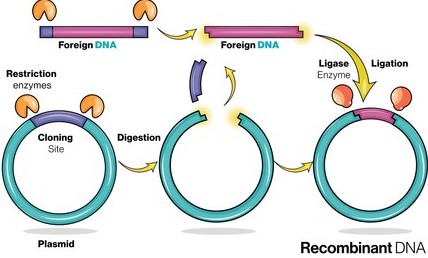
The course discusses about Recombinant DNA Technology which is a breakthrough invention in the field of biotechnology. It also covers the scope and impact of Recombinant DNA Technology on human life with several customized products. The Development of technology and generation of product has multiple steps and understanding these steps are being covered in this course with a discussion of biotechnology application at the end. By the end of this course, student will be able to understand following aspects of biotechnology:
1. Basic metabolic pathways and their regulation.
2. Microbial growth kinetics with an emphasis on fermentation
3. Basic molecular biology tools used in biotechnology.
4. Basic methodology for product recovery and analysis.
- Teacher: Shubhashree Mahalik

The course on Film Appreciation will be dealing with the different genres of film and film movements in India and abroad. It will also elaborate on the different steps in the process of film production.
- Teacher: Smiti Padhi
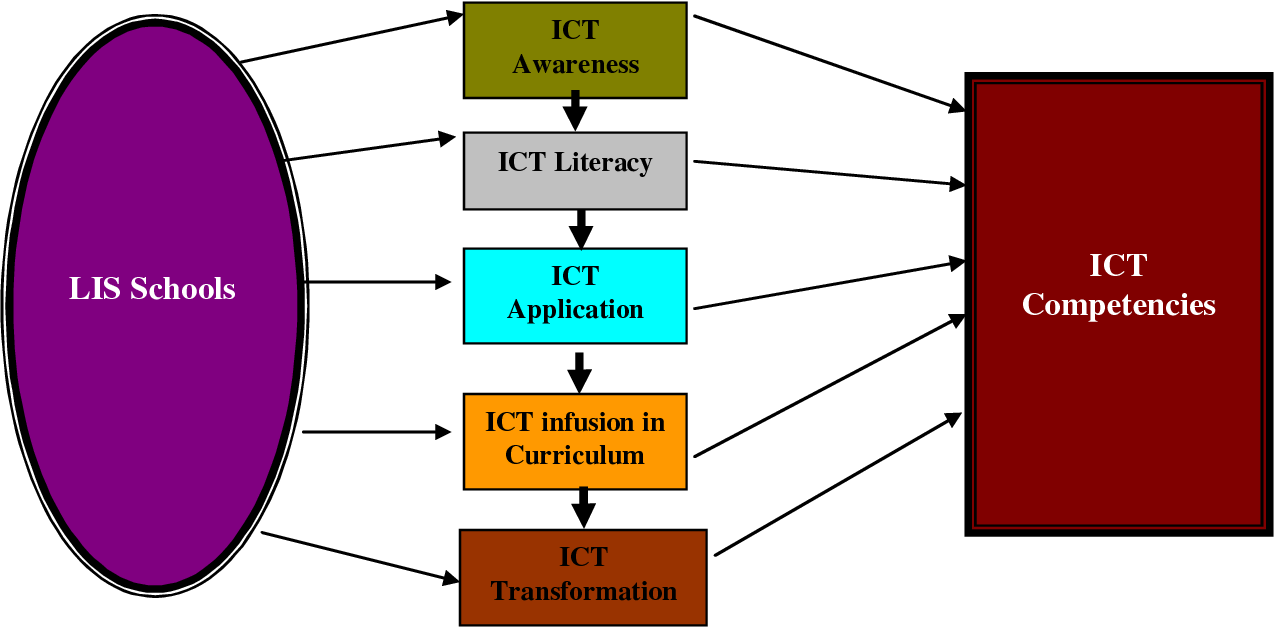
After completion of this lesson, you will be acquainted with basic concepts,
characteristics of ICT and its applications, advantages and disadvantages, and
components of ICT. You would will learn about evolution of computers from generation
one to generation five based on their size, components and processing capacity. You
were also introduced to the computer system and its functional units including input unit,
output unit, CPU and memory units, motherboard, ports, etc.
- Teacher: Dr. Manoj Kumar Acharya

The course is targeted
for students
of library science course. Learner will be able to know about fundamentals of
computer, Library house keeping operation using computer, automation of library
using open source Integrated Library Management software, internet basics, and providing
regular library services utilizing the Internet and web 2.0 tools to the users.
Also the learners will be able to get knowledge on web tools and web based
library services.
- Teacher: LILI SAHU

The content of this course include; Scientometrics, Bibliometrics and Altmetrics, Webometric.
- Teacher: Lulu Rout

Microbe is a broad and some what general one which embraces the biological organisms that are characterized principally by their small size.
The objective of this course to impact knowledge of the basic principle about the micro organisms which are commercially used to produce primary and secondary metabolites, bio films, vaccines, single cell protein, vaccine, drugs, vitamins, good products and so on.
- Teacher: Rajashree Das

Plant tissue culture is defined as culturing plant seeds, organs, explants, tissues, cells, or protoplasts on a chemically defined synthetic nutrient media under sterile and controlled conditions of light, temperature, and humidity.
- Teacher: Rajashree Das

The course will enable students to
- Identify edible and poisonous mushrooms
- Gain the knowledge of cultivation of different types of edible mushrooms and spawn production.
- Learn a means of self employment and income generation.
- Teacher: Adyasha Panda

This course deals with basic knowledge of plant Biochemistry and gives idea about different biomolecules in plant.
- Teacher: Adyasha Panda

Biostatistics plays and extremely significant role in addressing important medical and public health challenges. In the context of ever-growing problems in public health domains, it is important to address them in more quantified way so that health and well-being of people are maintained. This course is dedicated to deliver statistical concepts and methods that can be applied for the researches in public health domain.
- Teacher: Akash Mallick

There are many types of vaccines. Different types or formulations affect how they are used, how they are stored, and how they are administered. If they are to be safe and effective, it is vital to be familiar with the different types and to know how to handle them.
Different vaccines can cause different adverse reactions, and it is important to recognize what these may be. Can you identify the contraindications for vaccination and know which present an additional risk?
What special considerations should you make when immunizing pregnant women or immunocompromised clients?
This course will explain the different types of vaccine and the main routes of administration. You will learn about the main vaccine reactions and the importance of understanding contraindications – as ignoring these could lead to vaccine reactions. Finally, you will look at public concern over vaccines and consider some rumours about vaccine safety that have been disproved by research.
- Teacher: Manojit Bhattacharya

GENERAL MICROBIOLOGY:
INTRODUCTION TO MICROBIOLOGY
As a basic biological science, microbiology uses and develops tools for probing the fundamental processes of life .As an applied biological science, microbiology deals with many important practical problems in medicine, agriculture, and industry. Microorganisms existed on Earth for billions of years before plants and animals appeared, and we will see in later chapters that the diversity of microbial life far exceeds that of the plants and animals.
Like any science, microbiology owes much to its past. Although able to claim early roots, the science of microbiology didn’t really develop until the nineteenth century. Since that time, the field has exploded and spawned several new but related fields. We retrace these pathways of discovery now.
- Teacher: Manojit Bhattacharya

- Financial management is critically important to MBA students as it equips them with essential skills for strategic decision-making, resource allocation, risk management, and investment evaluation. MBA programs emphasize understanding financial statements, analyzing financial data, and using financial tools like NPV and IRR to make informed decisions that align with organizational goals. This knowledge is invaluable for managing finances efficiently, developing financial strategies, navigating ethical considerations, and advancing careers in various sectors including finance, consulting, and entrepreneurship. Ultimately, proficiency in financial management enables MBA students to contribute effectively to business growth, profitability, and sustainability in dynamic and competitive environments.
- Teacher: ARTTA BANDHU JENA
- Teacher: Debadutta Das
1. To make the students aware on growth and origin of labour
legislation
2. To help the students acquire the knowledge of substantive
as well as procedural contents of different labour codes.
To develop insights into cases related to labour laws.
3. To develop an insight into the Wage Law.
4. To develop skills in analysing labour issues and its relation
to different labour legislation
- Teacher: Pratima Burh

The Indian financial sector is experiencing rapid growth both in terms of a number of institutions and their diversity with several categories of new entities entering the market. The sector comprises:
- Various types of banks (public sector banks, private sector banks, foreign banks, cooperative banks – urban and rural, regional rural banks, payment banks, small finance banks etc)
- Various classes of non-banking financial companies (loan, investment, asset finance, microfinance, infrastructure, asset reconstruction, etc), insurance companies (life, general, health and reinsurance)
- Pension funds, mutual funds and other financial intermediaries that provide banking, insurance and financial services
- Teacher: ARTTA BANDHU JENA
- Business ethics refers to implementing appropriate business policies and practices with regard to arguably controversial subjects.
- Some issues that come up in a discussion of ethics include corporate governance, insider trading, bribery, discrimination, social responsibility, and fiduciary responsibilities.
- The law usually sets the tone for business ethics, though doing the bare minimum is generally frowned upon.
- Developing ethical models and practices can boost a company's revenues, profits, and share price
- Teacher: Pratima Burh
- Teacher: Debadutta Das
To provide an in-depth understanding of the role of performance
management in developing the human base of the organisation and
to enable the students to manage appraisal issues in organizations.
The course intends to familiarize the students about the concept,
techniques and issues concerning assessment center with emphasis
on developing and assessing managerial skills.
- Teacher: Monalisa Nayak
1. To make students aware about important business laws
2. To make students aware about different aspects of corporate governance
3. To develop skills in handling different issues in business law
and governance
- Teacher: Pratima Burh
1. To familiarize the students with the context & different aspects of managing people in the organizations
2. To understand role of HR managers in changing business environment
3. Understand HRM approaches to resourcing, managing performance, reward ,employee development & employee relation
4. To develop skill in critically analysing HR issues and able
to take HR decisions.
- Teacher: Monalisa Nayak
1. To make the students understand the concepts and applications of ethical principles and theories on business.
2. To make the students understand the concept of CSR and sustainability and their relevance in business.
3. To develop skills in handling ethical issues and dilemmas.
4. To develop decision making ability to resolve ethical issues
affecting business.
- Teacher: Monalisa Nayak

- Students should grasp the fundamental concepts behind derivative instruments such as options, futures, forwards, and swaps. This includes understanding the underlying assets, contract specifications, and payoff structures.
- Students should explore the practical applications of derivatives in finance, including speculation, hedging, and arbitrage strategies. Case studies and real-world examples can help illustrate how derivatives are used in different financial markets and industries.
- Teacher: Debadutta Nayak
- Teacher: Debadutta Das
Course Objectives
1. To make the students aware on the basic concept of business research
2. To make the students understand the process of business research
3. To help the students develop skill in handling and analysing data
4. To develop ability to create a scientific research proposal and to carry out thesame
- Teacher: Padmalita Routray
- Teacher: Bhabanisankar Jena

- To familiarize the students with different aspects of
performance & reward management
- To develop skills in implementing performance and reward
management
- To develop skills of
students in critically analysing Performance & reward management issues
- Teacher: Padmalita Routray

Organizational Behavior is a study of Individual, Group and Structure..
It is a field of study that investigates the impact that individuals, groups and structure have on behaviour within the organisation for the purpose of applying such knowledge towards improving organizational effectiveness.
- Teacher: Pratima Burh

- Teacher: Bhabanisankar Jena

The purpose of this course is to apply micro economic concepts and techniques in
evaluating business decisions taken by firms. The emphasis is on explaining how tools of
standard price theory can be employed to formulate a decision problem, evaluate
alternative courses of action and finally choose among alternatives.
- Teacher: Debadutta Nayak

- Teacher: Debadutta Das

1. To make the student understand the basic concepts of strategy & strategic management
2. To develop critical thinking skills in analysing impact of business environment on developing and implementing strategy
3. To provide an understanding of different strategic choices and their application in different situations
To have knowledge and skills in understanding strategic implementation issues and resolving the same- Teacher: Padmalita Routray

- Teacher: Debadutta Das

Consumer behaviour involves the purchasing, and other consumption related activities of people engaging in the exchange process. The study of consumer behaviour field draws its findings from a number of disciplines, viz. anthropology, sociology, social psychology, marketing research, and economics. Consumer behaviour knowledge may be applied in solving both micro and macro marketing problems. Thus, an understanding of the discipline is essential for a marketer who wishes to be successful in the face of competition. The total discussion of this unit has taken in three different lessons. Let’s start the lesson wise discussion.
Objectives:
· To understand the role of consumer behaviour in marketing
· To develop the skills to map the consumers mindset
· To develop understanding on influence of individual determinants on consumer behaviour and its implications in marketing
· To analyse emerging issues in consumer behaviour
- Teacher: Debadutta Das

This course aims to provide students the understanding of the structure,
organization and working of financial markets and institutions in India.
- Teacher: ARTTA BANDHU JENA
The objective of the course is
- To make the students understand the linkage between organisational strategy and HRM strategy
- To familiarize the students with different strategic aspects of HRM & its practical implication
- To help student understand nature of global corporation and its implication for HRM
- To develop skills of students in critically analysing strategic HR issues in domestic and global organisations
- Teacher: Padmalita Routray

The objective of this course is to :-
- understand the role of business analyst in business.
- understand the basic concept of business data management and data mining techniques.
- understand the basic concept of artificial neural network used in business analysis.
- understand the decision strategies.
- Teacher: Bhabanisankar Jena

This course intend to make the students understand the recent advances in HRM with specific focus on emerging trends in research & practice in HRM, issues and challenges in HRM. Besides, the course also focuses on various research methods in HRM and future of HRM
The course objectives are
|
1. To make the students aware on recent trends and practices in the field of HRM 2. To develop critical thinking and analytical skills in resolving HR issues and challenges 3. To develop ability to apply different statistical tools and techniques in HRM |
- Teacher: Padmalita Routray
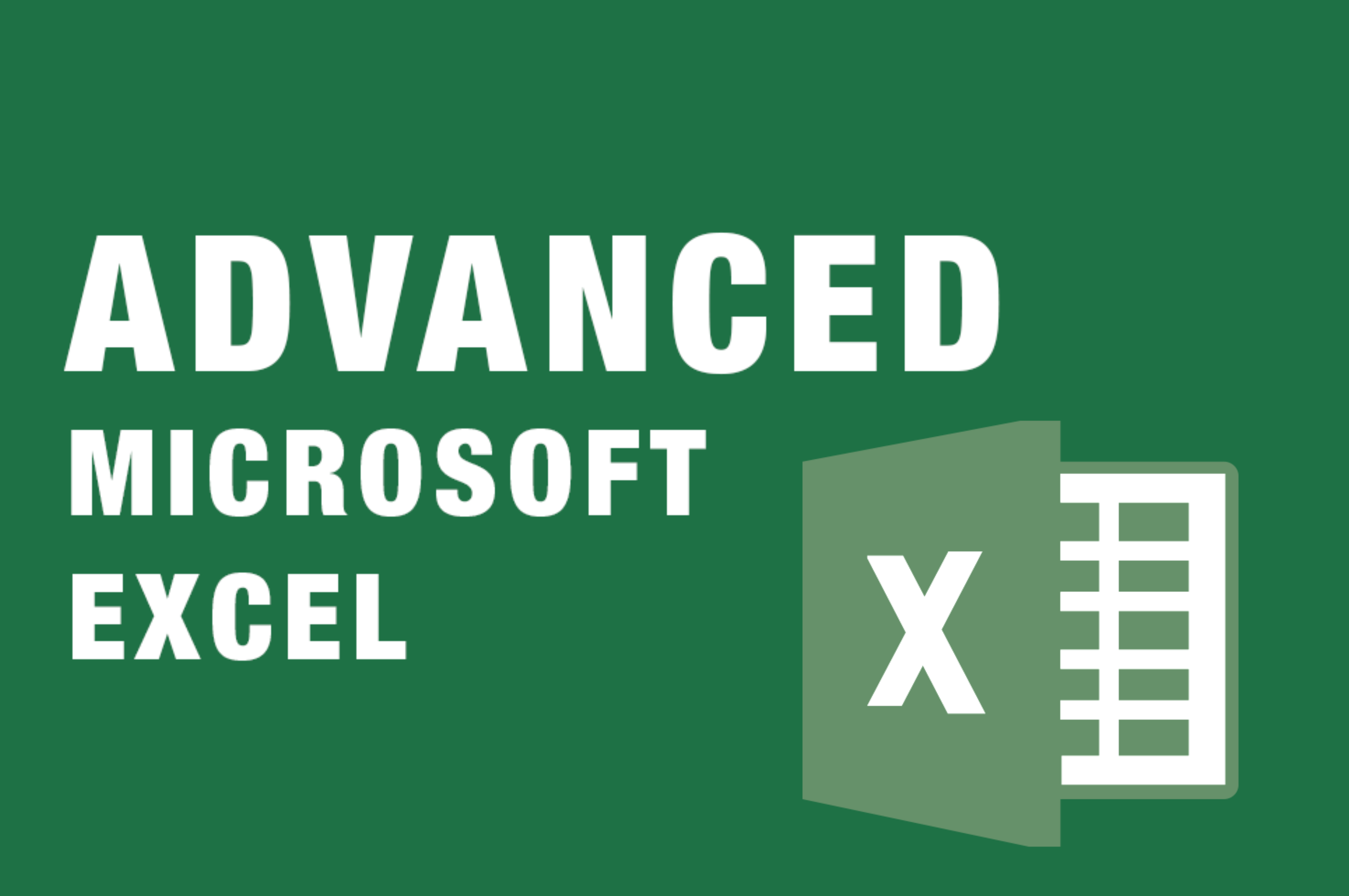
- Teacher: Debadutta Nayak

- A course on corporate governance and business ethics typically covers a range of topics aimed at providing students with an understanding of how organizations are structured, managed, and held accountable, as well as the ethical considerations involved in business decision-making.
- Teacher: Debadutta Nayak
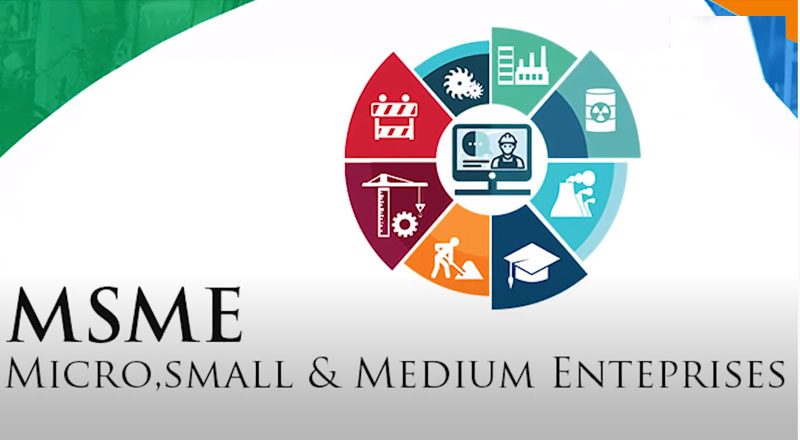
Entrepreneurship and MSME Management is concerned with the study of entrepreneurship behavior, the dynamics of business setup, development, promotion and expansion of the MSME Industry.
- Teacher: Dr. Rajaram Majhi

To make the students understand the various services offered and the risks banks face. To inform them of various banking innovations after nationalization and give them an overview of the insurance
industry. To make the students understand various principles, and provisions that govern the
Life General Insurance Contracts and banking company.
- Teacher: Riya Das

This course aims at developing an understanding of the changing domestic and global investment scenario in general and Indian capital market in particular with reference to availability of various financial products and operations of stock exchanges.
- Teacher: Debadutta Nayak
The objective of this course is to acquaint student with accounting concept, tools and techniques for decision making.
- Teacher: Gayatri Guha Roy

The objectives of this course is to enable the students to understands the fundamentals of financial management in the context of a business entity.
- Teacher: Dr. Rajaram Majhi
The objective of study is to impart knowledge to students with individual,group and structure behaviour within organisations for organization effectiveness
- Teacher: Pratima Burh

Knowledge management basically enhance the knowledge among the employee in the organisation. Knowledge management (KM) is the process of organizing, creating, using, and sharing collective knowledge within an organization. Successful knowledge management includes maintaining information in a place where it is easy to access, like a wiki or employee intranet.
- Teacher: Saloni Mallik

ସ୍ୱଭାବକବି ଗଙ୍ଗାଧର ମେହେରଙ୍କ ଜୀବନାଦର୍ଶ ଓ ସାହିତ୍ୟାଦର୍ଶ ଏଯାବତ ଓଡ଼ିଆ ସାହିତ୍ୟରେ ମାଇଲଖୁଣ୍ଟି ହୋଇ ରହିଛି କହିଲେ ଅତ୍ୟୁକ୍ତି ହେବନାହିଁ l ସେ ଯେଭଳି ଜୀବନବାଦୀ ଶିଳ୍ପୀ, ସେହିପରି ମଧ୍ୟ ପ୍ରକୃତିର ମହାନ ଚିତ୍ରକର l ପ୍ରକୃତିକୁ ଏତେ ଜୀବନ୍ତ, ପ୍ରାଣବନ୍ତ ଓ ଅସାଧାରଣ ଭାବେ ଗଢିତୋଳିବାରେ ସେ ଥିଲେ ଅନନ୍ୟ ଓ ଅସାଧାରଣ l ମାତୃଭୂମି ଓ ମାତୃଭାଷାର ବନ୍ଦନାରେ ସଦା ନିର୍ଲିପ୍ତ ଥିବା ଏହି ମହାନ ଜାତିପ୍ରେମୀ ସାହିତ୍ୟସାଧକଙ୍କର କାଳଜୟୀ ସାହିତ୍ୟକୃତି ଗୁଡିକର ଆକଳନ ଏହାର ପରିସରଭୁକ୍ତ l
- Teacher: Dr. Hemalata Behera
- Teacher: Dr Jayanta Kumar Das
- Teacher: Prahallada Khilla

- Teacher: Dr. Hemalata Behera
- Teacher: Dr Jayanta Kumar Das
- Teacher: Prahallada Khilla

ତୁଳନାତ୍ମକ ସାହିତ୍ୟର ପରିସର ଖୁବ ବ୍ୟାପକ l ତୁଳନାତ୍ମକ ଅଧ୍ୟୟନ ମାଧ୍ୟମଦେଇ ଖୁବ ସହଜରେ ଦୁଇଟି ଭିନ୍ନ ଭାଷା, ଭିନ୍ନ ସାହିତ୍ୟ, ଦୁଇଟି ଭିନ୍ନ ଭାଷାର ସାହିତ୍ୟିକଙ୍କ ସୃଜନ ସୃଷ୍ଟି, ଜୀବନ ଶୈଳୀ, ମନସ୍ତତ୍ତ୍ୱ, ସାମାଜିକ ପରିବେଶ, ଅଧ୍ୟାତ୍ମକ ପରିବେଶ, ଶୈଖିକ ପରିବେଶ ଆଦି ବିବିଧ ବିଷୟକୁ ନେଇ ସମାନ୍ତରାଳ ଅଧ୍ୟୟନ ପୂର୍ବକ ବଙ୍ଗୀୟ ଭାଷାର ଚର୍ଚ୍ଚିତ ବ୍ୟକ୍ତିତ୍ୱ ନୋବେଲ ପୁରସ୍କାର ବିଜୟୀ ରବୀନ୍ଦ୍ରନାଥ ଓ ଓଡ଼ିଆ ଭାଷାର ପ୍ରଥିତ ଯଶା କବି ଲକ୍ଷ୍ମୀକାନ୍ତଙ୍କ ମଧ୍ୟରେ ତୁଳନାତ୍ମକ ଅଧ୍ୟୟନ ହୋଇଛି l ଏଥିରେ ତନ୍ନ ତନ୍ନ ଭାବରେ ଉଭୟ କବିଙ୍କ ଜନ୍ମ ଜୀବନୀ, ଜୀବନ ଶୈଳୀ, ଦର୍ଶନ, ଚିନ୍ତନ, ସୃଜନ, ଲେଖକୀୟ ପ୍ରତିଭା ଆଦିରେ କିଭଳି ସାମଞ୍ଜସ୍ୟ ପରିଲକ୍ଷିତ ହେଇଛି ଓ ଉଭୟ କବିଙ୍କ କାବ୍ୟିକ ବିଚାରଧାରାକୁ ତାତ୍ତ୍ୱିକ ଭାବରେ ତଉଲା ଯାଇଛି l
- Teacher: Dr. Hemalata Behera

Its about Fakir mohan's prose
- Teacher: Dr Jayanta Kumar Das

ଏହି ବିଷୟଟି ଲୋକ ସଂସ୍କୃତି ଓ ଲୋକ ସାହିତ୍ୟ ସମ୍ୱନ୍ଧୀୟ ଅନେକ ତଥ୍ୟକୁ ନେଇ ଆଧାରିତ l ଏହା ଦୁଇଟି ପର୍ଯ୍ୟାୟରେ ବିଭାଜିତ l ପ୍ରଥମ ପର୍ଯ୍ୟାୟରେ ଲୋକସଂସ୍କୃତି ଓ ଲୋକ ସାହିତ୍ୟ କଣ ସେ ବିଷୟରେ ଏକ ଅବଧାରଣା ଦେବ l ଦ୍ୱିତୀୟ ପର୍ଯ୍ୟାୟରେ ଲୋକ ସାହିତ୍ୟର ଅନ୍ୟତମ ବଳିଷ୍ଠ ବିଭବ ଲୋକଗୀତ, ଏହା କେମିତି ପ୍ରାତ୍ୟହିକ ସମାଜ ଜୀବନର ଜୀବନ୍ତ ଆଲେଖ୍ୟକୁ ବହନ କରି ରୂପ ପାଇଛି ସେ ବିଷୟରେ ପୁଙ୍ଖାନୁପୁଙ୍ଖ ତଥ୍ୟାତ୍ମକ ଓ ତାତ୍ତ୍ୱିକ ବ୍ୟାଖ୍ୟା ଏଥିରେ କରାଯାଇଛି l
- Teacher: Dr. Hemalata Behera

ସଚ୍ଚିଦାନନ୍ଦ ରାଉତରାୟ ହେଉଛନ୍ତି ଆଧୁନିକ କବିମାନଙ୍କର କବି। ତାଙ୍କ କବିତା ସଂକଳନ 'ପାଣ୍ଡୁଲିପି' ଏକଦା ଓଡ଼ିଆ ସାହିତ୍ୟର ମୋଡ଼ ପରିବର୍ତ୍ତନ କରିଦେଇଥିଲା। ପ୍ରାରମ୍ଭିକ କାଳରେ ପାଥେୟ ସଂକଳନରେ ଥିବା ରୋମାଣ୍ଟିକ ଚେତନା ପ୍ରଗତିବାଦୀ ସାହିତ୍ୟ ବାଟଦେଇ ବାସ୍ତବବାଦୀ ଚେତନାରେ ମୁଖରିତ। ଏପରିକି ତାଙ୍କ କବିତାରେ ଥିବା ପ୍ରତୀକ, ଚିତ୍ରକଳ୍ବ ଓ ନୂତନ ଛନ୍ଦ ପାଇଁ ସେ ଓଡ଼ିଶାର ପାଠକଙ୍କ ହୃଦୟରେ ଚିରକାଳ ଥିବେ।
- Teacher: Debashis Patra

"Folklorists focus on the study of human creativity within specific cultural and social contexts, including how such expressions (i.e. stories, music, material culture and festivals) are linked to political, religious, ethnic, regional, and other forms of group identity."
- Teacher: Prahallada Khilla

ଓଡ଼ିଆ ଅସ୍ତିତ୍ବ ଓ ଅସ୍ମିତାର ପ୍ରତୀକ ହେଉଛନ୍ତି ଫକୀରମୋହନ ସେନାପତି।
ଓଡ଼ିଆ ଭାଷା ସାହିତ୍ୟର ସୁରକ୍ଷା ସହିତ ଜାତୀୟ ଚେତନାର ରୂପକାର ଭାବରେ ସେ ସ୍ବତନ୍ତ୍ର ସ୍ଥାନର ଅଧିକାରୀ। ତାଙ୍କର ଘଟଣା ବହୁଳ ଜୀବନରେ ଅନେକ ବାଧାବିଘ୍ନ ସତ୍ତ୍ଵେ ସେ ଭାଙ୍ଗି ପଡ଼ିନାହାନ୍ତି ବରଂ ସ୍ବାଭିମାନର ସହିତ ସମସ୍ତ ଦୁଃସ୍ଥିତି ବିରୁଦ୍ଧରେ ସଂଗ୍ରାମ କରି ଓଡ଼ିଆ ଜାତିପାଇଁ ପ୍ରେରଣାଦାୟୀ ପଦକ୍ଷେପ ଗ୍ରହଣ କରିଛନ୍ତି। ତାଙ୍କ ସାହିତ୍ୟ ମଧ୍ୟ ଅତ୍ୟନ୍ତ ଜୀବନଧର୍ମୀ ଯାହା ସାଧାରଣ ମଣିଷର ବ୍ୟଥା ଓ ଗାଥା ବଖାଣିବାରେ ସମର୍ଥ।
- Teacher: Debashis Patra

The objective of this course is to acquaint the students with the origin and development of Postcolonial Theory and Literature. The course concentrates on the literary studies across the world in the second half of the twentieth century.
- Teacher: SONALI DAS

This course introduces students to Translation theory and practice. The origin and major development of translation over the centuries will be discussed. The translator reputation,role of translation in current times and the various problems of untranslatability are focussed.
- Teacher: Soumya Sangita Sahoo

Shibli Nomani's Criticism
- Teacher: Shadab Alam
Agricultural economics is the study of how societies use available resources to meet the needs of people. It's represents the single largest use of the earth's resources in the world economy.
- Teacher: Sanjib Majhi

It discusses the various concepts relating to country's most important macro economic variable I.e., GDP
- Teacher: Gitanjali Panda
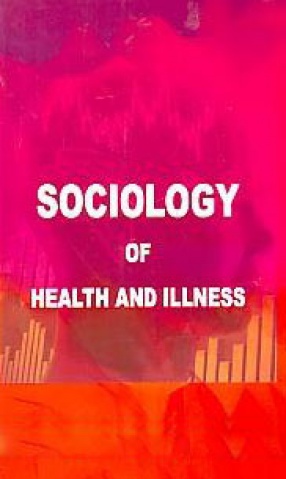
The attempt of this paper is to examine the relationship between Health and Society. It tries to understand how health is socially constructed and various conceptual and theoretical orientations to health. It also focuses on current Programmes and Policies related to health in Indian society.
- Teacher: Dr. Pabitra Mohan Nayak
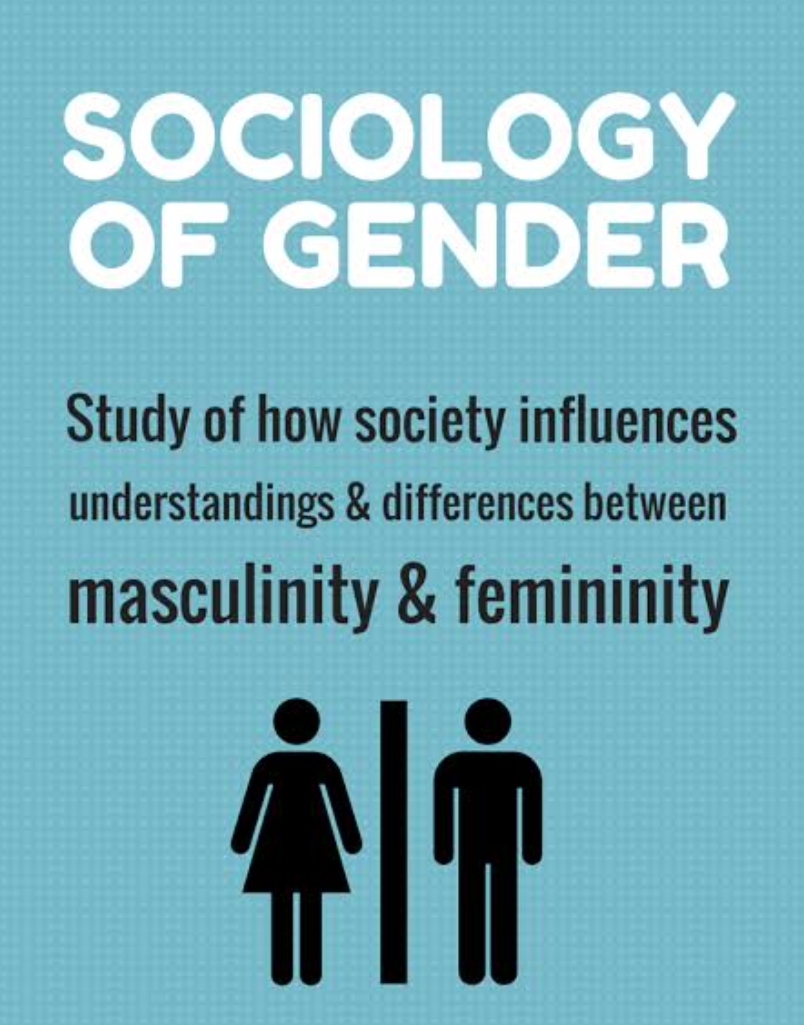
This course is going to discuss dynamics of Gender, Sex and it's changing contours in Indian Society. It will also focus on various issues and challenges of gender relations and it's consequences on the society and community.
- Teacher: Smrutisikta Thapa

The course is intended to focus on the relationship between education and society. It analyses the conceptual as well as theoretical orientations in analysing the current educational scenario in Indian society.
- Teacher: Dr. Pabitra Mohan Nayak

The basic objective of this course is to introduce students the various type of art and architecture of temples of India. It will help to know about Buddhist architecture and Brahmanical architecture and
to discuss the art, architecture, and their growth from period to period- Teacher: Sikhasree Ray

Knowledge of various inscriptions and various type of coins issued during the various ruling dynasties. It will help to know the various script in ancient India. It will aimed to
discuss the details written in various inscriptions and numismatics.- Teacher: Sikhasree Ray
The constant flow of wealth from India to Britain for which India did not get adequate commercial,economic and material return for which India national leaders or economist called as a Drain of wealth.
- Teacher: DR.SUSANTA BARIK

This course will discuss about basics of Population Study and also tried to give clarity about the difference of population study and demography.
- Teacher: Grace Mundu
This course will give exposure to basics of Population study and the difference between Demography and Population Study.
- Teacher: Grace Mundu

This is first basic paper of Population Studies. The objective of this paper is to introduce the students to the scope and importance of the discipline of Population Studies.
- Teacher: Jagannath Behera
This course is intented to familarize the demographic techniques and it's application. It will also deal how various demographic techniques can be used in various research purposes.
- Teacher: MOATULA Ao
This course is about demographic data sources
- Teacher: Grace Mundu

NGOs are primarily aimed at serving the community at large, specially the disempowered and working for their welfare. Millions of illiterate, poor, impoverished and disadvantaged citizens are marginalized and unable to lead a life of dignity. Some among us feel the need to do something meaningful, to engage in working towards realization of various public goods for other citizens, more particularly the excluded, poor and marginalized. These people are committed to and value the spirit of ‘service’ to society. When like-minded people who want to ‘serve’ their community and society at large decide to work together in a structured way, they form what is today commonly called an NGO.
After completing this unit, the Trainee will be familiar with:
- The relevance of an NGO and the rationale behind its formation;
- Definitions, characteristics and classification of NGOs;
- Evolution of NGOs along various development frameworks, and the different approaches towards it; and
- The
growing role of NGOs in developing countries and etc...
- Teacher: Rashmirekha Rout
The Outcomes of the course is to inculcate the philosophical perspective of Education
- Teacher: Bhupal Bhandary
To understand the Nature ,Scope,of Mathematics in school curriculum.
- Teacher: Shishir Mohanty

Broad objectives of the Early Childhood Care and Education programme are to:
- Ensure each child is valued, respected, feels safe and secure and develops a positive self-concept.
- Imbibe good nutrition routines, health habits, hygiene practices and self-help skills
- Enable children for effective communication and foster both receptive and expressive language
- Promote development and integration of the senses
- Stimulate intellectual curiosity and develop conceptual understanding of the world around by
- providing opportunities to explore, investigate and experiment
- Enhance development of pro-social skills, social competence and emotional well being
- Develop sense of aesthetic appreciation and stimulate creative learning processes.
- Imbibe culturally and developmentally appropriate behaviour and core human values of respect and love for fellow human beings.
- Enable a smooth transition from home to ECCE centre to formal schooling
- Enhance scope for overall personality development
- Enable a sound foundation for physical and motor development of each child- as per each child's potential.
As per NEP 2020,
The overall aim of ECCE will be to attain optimal outcomes in the domains of: physical and motor development, cognitive development, socio-emotional-ethical development, cultural/artistic development, and the development of communication and early language, literacy, and numeracy.
- Teacher: Satadal Giri

Contemporary Education's mission is to transform education to mobilize students to make meaningful decisions in their lives after school life, considering how they make choices about own health, how they develop their social relationships with others and how they impact the natural world around them.
- Teacher: Satadal Giri

Educational Technology is the field of study that investigates the process of analysing, designing, developing, implementing, and evaluating the instructional environment, learning materials, learners, and the learning process in order to improve teaching and learning. Educational technology is the combined use of computer hardware, software, and educational theory and practice to facilitate learning.
Objective:
The basic objectives of this course is to acquaint the learners about the concept of Educational Technology & ICT, Approaches to Educational Technology, Aspects of Teaching, process of Modification of teachers’ behaviour, types of Teachings Models.
- Teacher: Jyoti Sankar Pradhan

To develop understanding of the historical perspective of education in pre and
Post independent India.
To critically analyze the policies and commissions and its implication on the
educational system.
To develop understanding of the implications of various contribution through
education for an equitable society.
To develop understanding of the political perspective of education.
To develop understanding of the economics of education
To develop understanding of the Perspectives on Political economy of education
- Teacher: Rasmita Tad
- Explain the concepts of growth and development of human child and the underlined general principles of growth and development.
- Describe briefly the periods and the typical characteristics of growth and development during each period.
- Describe the developmental needs for children and suggest educational strategies for holistic development of children.
- Explain the problems and issues face by children and strategies required to address the problems.
- Specify the contexts and factors influencing development.
- Explain the theories of socio-emotional, cognitive and language development and their educational implications.
- Describe the developmental characteristics of childhood development and their bearing on school and classroom practices.
- Elaborate the developmental characteristics, contextual needs and tasks during adolescence and the role of school and teachers in addressing the challenges during this period of development.
- State the different forms and characteristics of individual differences and the ways of meeting the classroom issues arising out of the differences.
- Teacher: Subashisa Lenka

The development of professional skills aims to equip educators with necessary knowledge, abilities, and attitudes to excel in their profession. teachers develop deep understanding and expertise of pedagogical knowledge for facilitate student learning. teachers learn techniques to create a positive and productive learning environment. development of communication and interpersonal skills for fostering the strong relationship and collaboration. teachers recognize the importance of continuous professional development, staying update with research and advancement of education.
- Teacher: SANTOSH MOHALIK
The course deals with
1. the evaluation should be continuous and comprehensive in an ideal teaching learing process
2. The importance of CCE for achieving the goals of learning in education.
- Teacher: Bhupal Bhandary

After completion of the course students will able to:
- Understand the Historical development of various educational media
- Use various digital technologies for creating resources and enhance learning experience for all types of learners
- Explain the role of ICT in authentic and alternative assessment
- Use various ICT for Project based/Problem based constructivist learning environment
- Teacher: Shishir Mohanty

After completion of this course, the student will be able to
(i) building capacity to create, access, re-use, adapt and redistribute OER;
(ii) developing supportive policy;
(iii) encouraging inclusive and equitable quality OER;
(iv) nurturing the creation of sustainability models for OER, and
(v) facilitating international cooperation
- Teacher: Satadal Giri

- Numbers of Application Software used in daily office works
- Use of applications for organising data
- Use of applications for analysing and processing of data
- Use of applications for disseminating and publishing of data.
- Teacher: Chintamani Majhi

- Teacher: Pratima Pradhan

The objectives of studying the pedagogy of social studies:
Developing critical thinking skills
Promoting civic engagement and active citizenship
Encouraging historical and cultural understanding
Developing research and inquiry skills
- Teacher: Amulya Kumar Acharya

- Specify different aspects of quality learning and the issues affecting quality of classroom learning.
- Understand various approaches and methods of learning and teaching.
- Elaborate the process of classroom management for promoting effective learning.
- Teacher: PRAGATIKA SINGH

At the end of this course the student will be able to:
- Elaborate the concept, need and importance of assessment and evaluation in education
- Construct necessary tools for measuring learning outcomes of pupils
- Understand and adopt CCE
- State various grading and scoring system
- Compare between standardize test and teacher made test.
- Explain the concept of reliability and validity.
- Teacher: Dr. RANJAN KUMAR ROUT

The study of Sociological Foundations of Education will enable the students to:
Understanding the relationship between education and society
Identifying educational inequalities
Examining educational systems and institutions
Exploring educational practices and processes
Informing educational policy and practice
- Teacher: Chintamani Majhi
- Teacher: Pratima Pradhan

History
is studied chronologically and the history of any period is studied in a
specific logical sequence. In the absence of this sequence it becomes difficult
to understand and remember the historical facts. The history of Indian
education is generally studied under three periods-ancient, medieval and
modern. Ancient period is generally divided into two sub-periods-Vedic period
and Buddhist period, Medieval period is also divided into two sub-periods-Pre
Mughal period and Mughal period and the Modern period is generally divided into
four sub-periods-Christian Missionary period, East India Company period,
British period and Post-Independence period. This course covers History of Indian Education from Ancient period to modern period including recommendations of different committee and commission and Education policy from preschool education to higher education.
The basic objectives of this course is to acquaint the learners about the education system in various periods of history, changing pattern of education system from time to time, role of commissions and committee in shaping the present education system, various policies and programmes of education in India.
- Teacher: Jyoti Sankar Pradhan
Labour law is basically to know more about where it's applicability of law when it comes to any dispute or grievances arising out of the the employee and employer and how to settle the matter.
- Teacher: Saloni Mallik

ଫକିର ମୋହନ ସେନାପତିଙ୍କ ଉପନ୍ୟାସ ..........
- Teacher: Fakir Mohan University Administrator
- Teacher: Bhabanisankar Jena
- Teacher: Dr. Bibekananda Nayak
- Teacher: Ashis Kumar Pradhan
- Teacher: Dr Asim Amitabh Pradhan

ଛ' ମାଣ ଆଠ ଗୁଣ୍ଠ ଓଡ଼ିଆ ଉପନ୍ୟାସ ସାହିତ୍ୟର ଗର୍ବ ଓ ଗୌରବ। ଛ' ମାଣ ଆଠ ଗୁଣ୍ଠର ମୁଖ୍ଯ ବିଷୟବସ୍ତୁ ଯଦିଓ ଊନବିଂଶ ଶତାବ୍ଦୀର ପ୍ରାରମ୍ଭରୁ ୧୮୪୦ ମସିହା ମଧ୍ଯରେ ସୀମିତ, ତଥାପି ଲେଖକ ବିଭିନ୍ନ ସ୍ଥାନରେ ସମକାଳୀନ ଓଡ଼ିଶାର ବହୁକଥା ଏଥିରେ ଉଲ୍ଲେଖ କରିଛନ୍ତି। ଏହା ଏକ ସାମାଜିକ ଉପନ୍ୟାସ। ସମସାମୟିକ ଜମିଦାରମାନଙ୍କର ନିଷ୍ଠୁରତାର ଏକ ଜୀବନ୍ତ ଚିତ୍ର ଏହି ଉପନ୍ୟାସରେ ଉଲ୍ଲେଖ। ଫକୀରମୋହନଙ୍କ ଛ' ମାଣ ଆଠ ଗୁଣ୍ଠ ଓଡ଼ିଆ ଉପନ୍ୟାସ ସାହିତ୍ୟରେ ଏକ ନୂତନ କ୍ରାନ୍ତି। ଏହା ଏକ ଯୁଗୋପଯୋଗୀ ସାମାଜିକ ଉପନ୍ୟାସ ଯାହା ଓଡ଼ିଶାର ଗ୍ରାମାଞ୍ଚଳର ଚିତ୍ର ବହନ କରି ଗଢ଼ି ଉଠିଛି।
- Teacher: Dr. Rajaram Majhi






